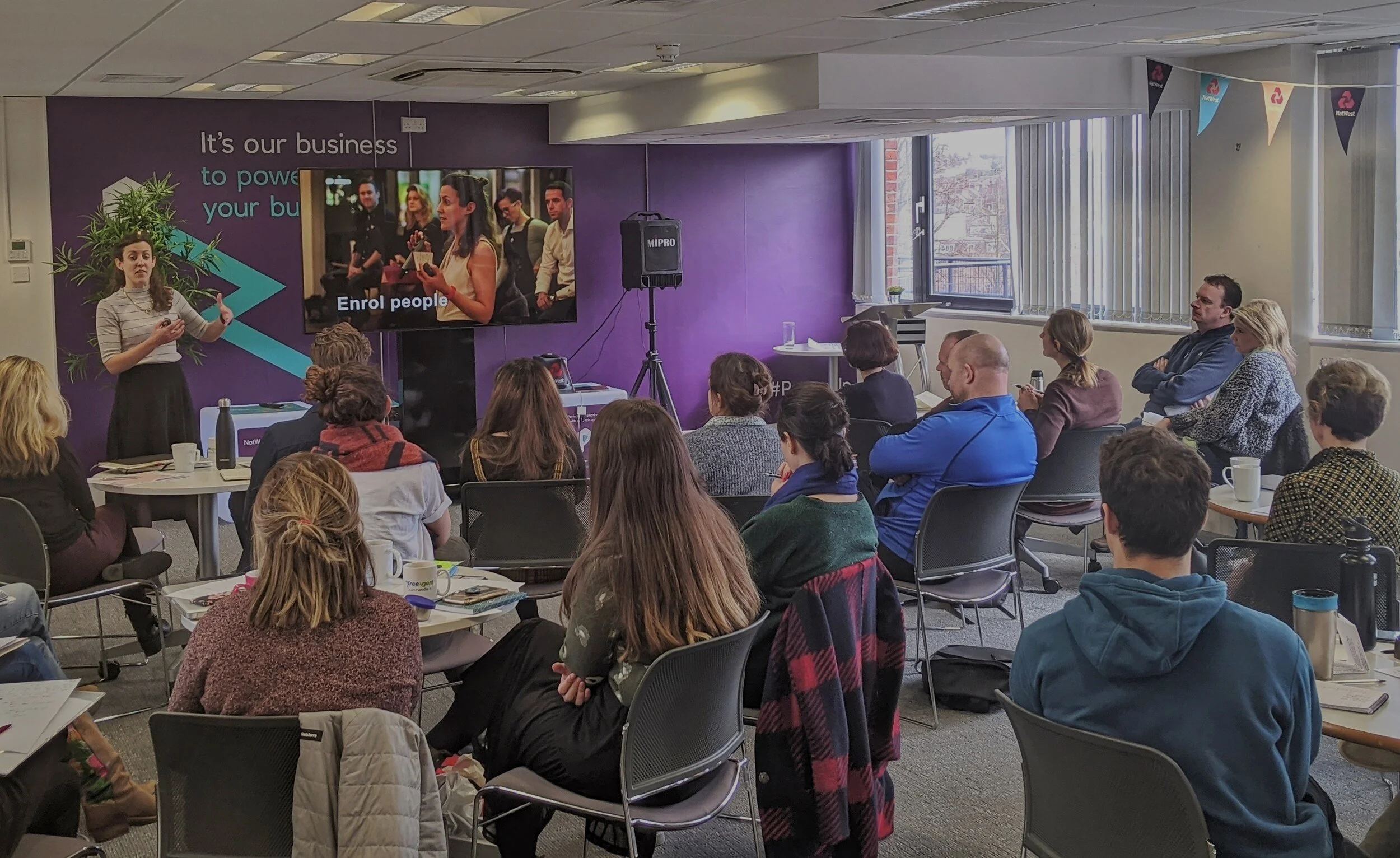5 commons mistakes to avoid when starting up a business
Even with a business degree, working in a handful of startups and running an accelerator programme, starting up The Good Business Club hasn’t been a walk in the park. But I do attribute my past experience with enabling me to know where to focus my attention and along the way I’ve picked up other lessons that I want to share with you today.
1. Is there even a challenge?
If you’ve got what you believe to be a brilliant idea, and even if people in your immediate circle think so, it’s important to get real with yourself and really do the research. The key here is to focus on the problem, not the solution.
What is the problem you are trying to solve? Who is being impacted by that problem? What’s the impact on their lives?
We are so fortunate to have access to invaluable research that other people have embarked on right at our fingertips, but go beyond the internet and get in front of people who are living with the problem or others who are already creating solutions to ensure you’ve got a good grasp of the situation.
What you’ll discover is what has already been tried and perhaps failed. You’ll learn from others' lessons. And ultimately you are more likely to find a niche that hasn’t been tried that gives you your sweet spot for entry into the market.
Action
Here are five steps to follow that will ultimately lead you to creating a more worthwhile product or service than you started off with.
2. Get clear on why you are doing this
If you’ve not come across Simon Sinek’s ‘Start with Why’, go and check out his introduction Ted Talk to get clear on what drives you to see change happen in the area you’re focused on and what future you’re looking to contribute to creating.
Why is this important?
Firstly, the journey ahead is a tough one. I won’t sugarcoat it. ⅔ of startups don’t make it past their third year and for many, the founder has given up. Being clear on why you’re dedicating your time to creating this business is going to give you a north star on the darkest of days. I can’t tell you what a difference it has made when I’ve been at the bottom of the rollercoaster ride of starting up The Good Business Club.
Secondly, people and other organisations will relate to and align with why you are doing what you are doing. This will allow you to grow your network and enroll like-minded people in what you are doing, even before you’ve got a product or service to speak of. And you’ll want the right community around you if you want to reach further, faster.
Action
Everyone has a ‘why’, even if you’re not running a business driven by its purpose. If you don’t think you do, I’d invite you to look at what makes you excited. And it might not be what you are already setting out to do.
3. This isn’t about perfection tomorrow
“Starting” a business and “early-stage” are both vague terms that don’t speak much to a timeframe and are actually a lot longer than I thought when I first started up my business. I wanted to get to the “finished product” - which for me was a sustainable team delivering value to our community every day - as soon as possible.
What I began to get comfortable with was that starting a business could take years, not months. As a business that has passed the three-year mark (whoop), I feel like we have just passed “starting” but are still firmly in “early stage”.
What getting comfortable with the journey ahead allowed me to do was focus on what we could learn to develop the best service, rather than being worried about having the perfect offer immediately.
It gave me the confidence to test new ideas, play around with pricing, ask for honest feedback from people who weren’t interested or left the community. It didn’t feel so critical to get it right right away and has enabled us to take the mindset from the first point - curiosity - into our continuous approach as we grow the business.
Action
Give yourself the breathing room to be creative and don’t put unnecessary pressure on yourself. The best businesses took this approach and that’s why they have been so successful.
4. Don’t do it alone
This was a game-changer for me. I’ve already mentioned the experience I brought when I started up the business and because of that, I put a whole amount of pressure on myself to get it right because I believe it’s what other people expected of me.
I would only share how well the business was going and shout out about our successes and didn’t invite anyone to support me as I was terrified that if they did, they would quickly find out that I didn’t always feel like I knew what I was doing.
In the second year of starting up the business, I realised this and had a really honest conversation with myself. To build the business the way I wanted, I would not be able to do that on my own. Logistically and practically impossible. So I decided that I would have to let people in, be vulnerable, and it’s the best decision I’ve ever made.
I discovered that no one was expecting me to have all the answers and that how I felt was common amongst all business owners, even those who were running businesses for much longer than I had. That burst bubble changed the game for me because it removed the barrier that was in the way of me filling my own knowledge gaps and gave me access to people to soundboard and problem solve challenges with which has brought such relief during some really challenging moments.
Action
If you haven’t already, I highly recommend finding yourself a mentor, building an advisory board around you, finding your tribe of like-minded business owners, and start delegating work to a team (employees or freelancers) so you can step out of your own way and actually bring your vision to life.
5. There isn’t one way to fund your business
When it comes to funding to get your business off the ground, there are a number of ways to go about it and it really depends on the type of business you’re looking to create.
A tech founder who has an easily scalable product and a desire to sell the company in 5 - 10 years time will be much more appealing to a traditional investor than a social enterprise. Grant funding may be available to a start up innovating in the clean energy space and not as readily available to a marketing agency.
The key lessons here is to get clear on what type of business you’re looking at growing in the next 5 - 10 years time and then looking at what funding will enable that, not the other way around.
I’ve seen too many businesses, particularly in the social enterprise space, who design their companies around funders requirements, deprioritising (normally unwittingly) the future sustainability of the business.
I’ve seen businesses that raise money fail to create desirable products, countless social enterprises get caught up in the funding trap, and bootstrapped ideas take off. Success is in the eye of the founder and the type of business they want to create, not in the investment or growth they attain.
Action
Start with what you want to create and then see what options you have to get the idea off the ground. With a clear vision will come numerous opportunities.
Running a good business is tough. That’s a given. “Getting it right” as it were is a combination of knowing where to focus and what to work on (and what not to) and an openness to developing as an individual along the way. I hope these five lessons help you avoid the most common mistakes early-stage business owners make and enable you to reach the three-year mark too.
Event or Podcast Speaker
Starting up a business isn’t easy and we need to change the narrative of what “success” looks and feels like.
From practical lessons to daily imposter syndrome, I share my honest story of being an entrepreneur to enable the next generation of business owners to start up with more clarity and confidence.





